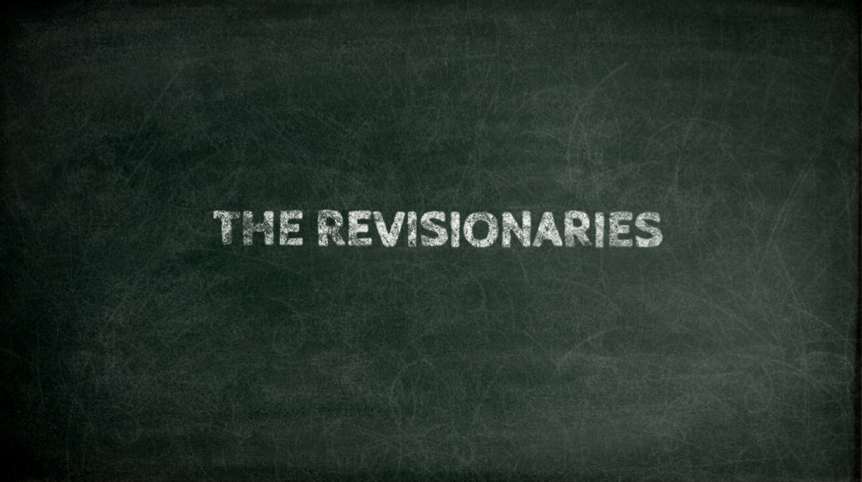
Distribution Tips from Documentary Filmmaker Scott Thurman
Documentary filmmaker Scott Thurman takes us through his journey of finding distribution as an independent filmmaker.
Producing an independent film takes a lot of time and effort, but in reality this process can pale in comparison with the task of trying to find distribution for that film. So, to give us an idea of what distribution is is like for a successful documentary film we chatted with director Scott Thurman about his 2012 Tribeca Special Jury Prized film The Revisionaries.
Official trailer to the film from Naked Edge Films.
Scott was able to begin production on The Revisionaries during the second year of his masters program and continue that work into his thesis year. From here he submitted the film to various festivals and received tremendous feedback. This is when Tribeca came calling. From that point on Scott and his producers were able to setup a broadcast deal with PBS through Independent Lens, find core distribution with Kino Lorber and strike a smaller deal with Netflix to give The Revisionaries maximum exposure. In the Q&A below we talk to Scott about this process and he gives us a short glimpse into each step.
After the final cut of The Revisionaries was complete what was your first step toward finding distribution? Did you plan out what you wanted to do with the film? Did you set specific goals and strive towards those?
Our plan was simply to get the best distribution offer(s) we could. Leading up to Tribeca, the two other producers and I decided to pull in a third producer to specifically work on obtaining distribution. Once we were accepted to Tribeca and the screening schedule was announced, my producer notified approximately 20 distributors about our premiere, some he had closer relationships with than others.
We wanted them to come to the premiere so that they would all see it for the first time, to try to create a bidding war between them. We also contacted Independent Lens at that point (my producer had been in contact with them on other docs) but they didn’t have a rep at Tribeca so we sent them a link to an online screener the day of the premiere. After the premiere, we sent out that link to all distributors.
You ended up building quite a buzz for the film prior to it hitting Tribeca, how did you effectively do that? And also, speak to things that you would have done differently now that you’ve gone through that process.
Well we got lucky with the Colbert Report inviting Don McLeroy [the documentary’s main character] on the show a couple of days before the premiere, but the biggest support actually came from Trebeca’s PR team. In fact, SXSW and Tribeca both wanted us in the beginning but we could see early on that Tribeca was much more interested in the film and willing to help promote it so that’s why we went with them. Tribeca included us on a list of top films at the festival that year, which they refer to as “curtain raisers” that went out to big local press like NYT and the Wall Street Journal.
We also reached out to online communities and popular bloggers that would take an interest in the subject matter like the National Center for Science Education, the Skeptics Society, and the science blogger Phil Plaitt, who all made announcements.
What was it about your approach to promotion and building buzz that helped to make Tribeca take notice?
The quality of the film is hands down what got us into Tribeca, but after you’re somewhat well known, your film will often be reviewed by a “decision maker” at the festival rather than one of the many interns they have initially viewing all the entries. Since my producer had been involved with other films at Tribeca in the past, he knew some of these decision makers and made sure the film was seen by them.
Was it the Tribeca screening and Special Jury Selection that landed you a number of suitors who wanted to release the film?
Yes, as soon as Tribeca announced, we were contacted by a few, but we didn’t have any good offers and only Kino Lorber were willing to actually provide a minimum guarantee (upfront payment) as well as payment on the back end (% of proceeds). The special jury prize didn’t really help us. The Kino offer was made at the 2nd screening at Tribeca and they sent us the paper work within a couple weeks.
But before that deal went through, we got an offer from Independent Lens for the TV broadcast rights for $50k, and negotiated that deal prior to the Kino deal. Kino wouldn’t get as much of a % of the deal, but they did get some, including North American theatrical/DVD/online/educational.
At the end of the day filmmakers want their films to reach audiences through some form of distribution, but they also want to garner enough revenue from that distribution so that they can earn an income that allows them to make another film? Have you been able to do this with The Revisionaries?
No, but the notoriety I received from The Revisionaries helped me land a freelance documentary gig that supported me for the following year in Austin and that notoriety will continue to help me get in the door of future grants, festivals, and distribution opportunities.
The film found its way onto Netflix for a time, while it was there were you able to utilize that instant watch distribution to earn additional revenue?
I’m told by my producer that filmmakers should first contact TV (HBO, Showtime, etc.) and significant online distributors like Netflix prior to courting all-around distributors like Kino. I’m not sure of the details of the Netflix deal but I know we and the distributor don’t receive a payment for every time the film is viewed, but rather one lump sum up front.
One interesting thing to note about that Netflix deal is that we were told that one of the ways they figure out the demand for films is to look at how many torrents (illegal downloads) of the film their are online. We seem to have a lot, then and even more now, but that really doesn’t bother me.
Are you looking at any additional avenues of distribution for the film?
We just received a ridiculously small offer from a Chinese distributor acquire the rights for a limited time over there.
Looking back at the entire process you went through, what would you have done differently? If you could go back in time and talk to yourself just before the final cut was finished what would you tell yourself? What advice would you give?
I wouldn’t change anything with the approach/angle on the issue or major adjustments to the story and I don’t even think a more professional image would’ve done much either because distributors understand that the quality of the image doesn’t have to be amazing if the story’s great. I think that more professional animation/graphics can go a long way to make a decent picture seem more like a “million dollar movie” to potential buyers.
Scott gave us a lot of good insight on the process of finding distribution for independents. He parted our discussion by giving us one last piece of advice. “One other thing we met that third distributor at IFP Week in NY. It’s an opportunity for filmmakers to pitch their “almost complete, but in progress” films to distributors, broadcasters, and other producers. Daniel and his partner came across our project and we started talking.”
In this interview with Global Journalist from the Missouri School of Journalism director Scott Thurman discusses his film at length with host David Reed.
Here is the Tribeca Special Jury Prize, presented by documentary filmmaker Michael Moore.





